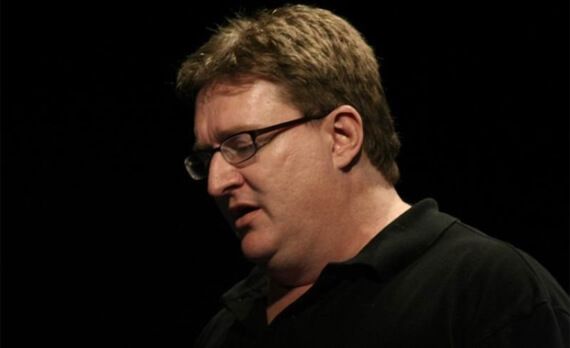With each passing year, it's becoming more and more apparent just how much money there is to be spent and earned in the games industry. Black Ops, Halo: Reach, and Assassin's Creed: Brotherhood all broke industry and series records by selling well into the hundreds of millions of dollars, so it might seem that the market is too crowded with power players for a little guy to survive. But President of Valve Gabe Newell believes that the internet revolution has turned traditional economic teachings on their head, and allowed independent development to become stronger than ever.
We don't have to go through the catalogue of indie games to bring them to your attention, since they have likely made their way onto some of your lists of all-time greats. Braid, Super Meat Boy, 'Splosion Man, Flower, and Trials HD are just a handful of the greatest games that have come to fruition without corporate backing, and they have the internet to thank.
While some saw the internet as merely a corporate tool, or an online library, Valve was among the few companies who truly saw the potential revolution it could bring to gaming, and their predictions have led to digital market dominance with Steam.
The aspiring game developers out there may think that creating games is harder than ever, and wouldn't have a chance of convincing executive after executive that your idea was worth the effort. If that's the case, then Gabe Newell has some words of encouragement, and a reminder that nothing is more valued in the gaming industry than the ability and drive to create. And he should know.
And thanks to the technological leaps and bounds of the past decades, finding a market for your idea has never been easier:
"At this time, I would say it's easier for smaller projects to develop an audience than it ever has [been] before. So if you look at the independent games scene, I think there's a lot of super interesting stuff that's happening there. And it's now possible for them to reach a worldwide audience without having to convince a bunch of intermediaries that they should publish their game or carry their game.
"So, I'd say that... these large economic fundamentals are dwarfed by the efficiency that the internet has enabled for guys like [Braid creator] Jonathan Blow, or Super Meat Boy, or all of the indie guys [who] are able to develop and deliver products that never would have been possible several years ago."
Valve has always marched to the beat of their own drummer, and voiced their belief that an artistic vision is what counts, not elements of gameplay that some think are a necessity. It hasn't steered them wrong so far, with the original Portal little more than a physics experiment with a compelling story weaved through it. Now, Portal 2 has grown into an entire game that he claims is his favorite out of the company's list of releases.
Newell couldn't understate the importance of making the most out of the fan interaction and discussion that the internet has made possible, citing the company's use of such tools as integral to their way of doing business. And with more and more indie developers working together to market and sell their titles, it's hard to argue that the industry isn't looking up.
Valve may be long past the point of being considered somewhat of an independent studio, but their way of thinking is still clearly more in line with the passion of developers than that of a faceless conglomerate.
Do you agree with Newell's take on the independent scene? Or do you think the situation isn't as hopeful? Let us know in the comments.
Source: The Escapist

